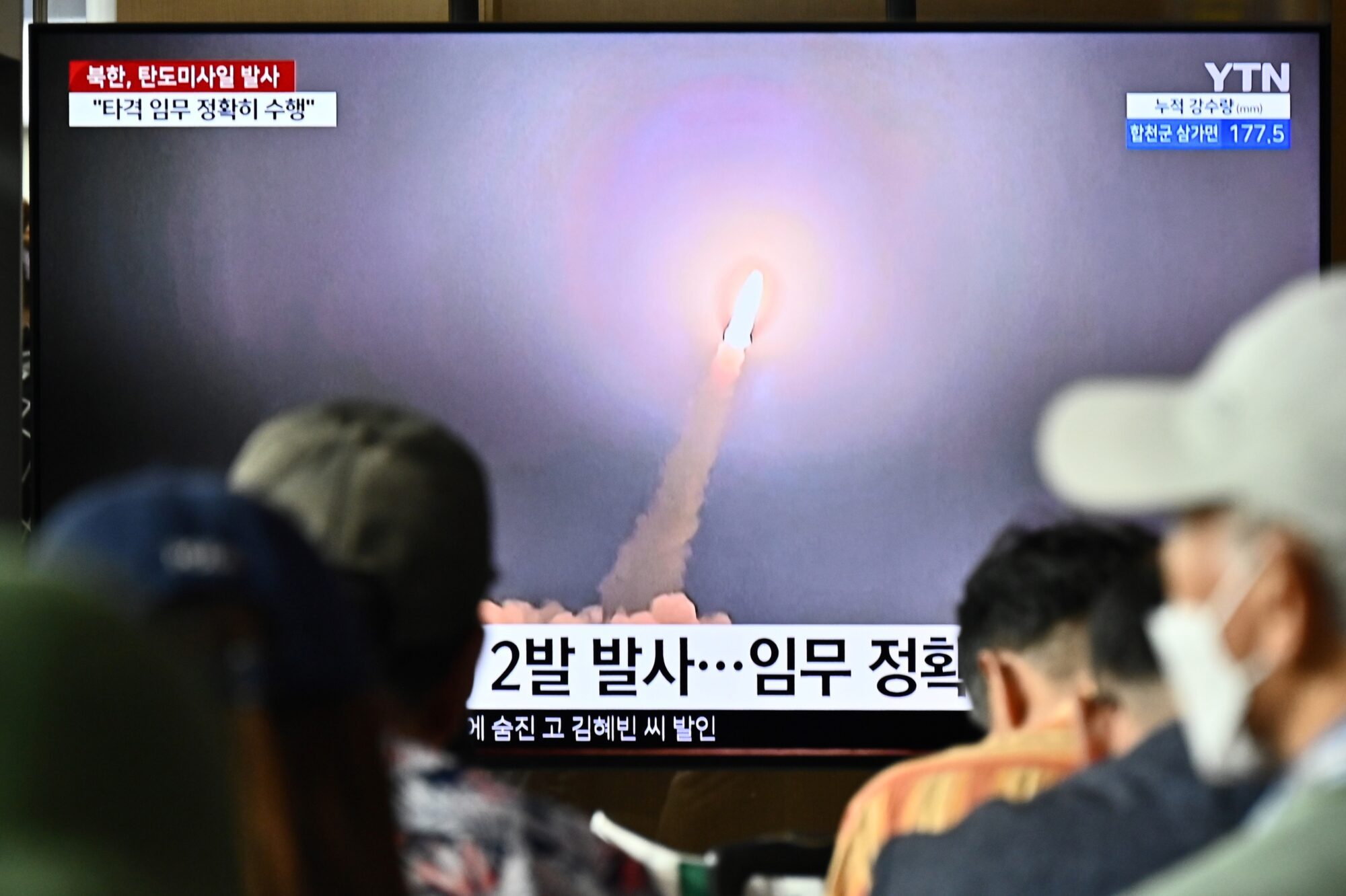
People watch a news broadcast with a photo of a North Korean missile test at a railway station in Seoul on August 31st, 2023.
Anthony Wallace / AFP
At a press conference on Wednesday, August 30th, at the United Nations in New York, U.S. Ambassador Linda Thomas-Greenfield, flanked by representatives of Japan, South Korea, and the UK, said that Russia and North Korea were “actively advancing” negotiations for weapons that would be used in the war in Ukraine.
Calling the development new and “deeply troubling,” she added that any arms deals between the two nations are “shameful” and would violate UN Security Council resolutions.
The North Korean and Russian missions to the UN in New York did not immediately respond to a request for comment, Reuters reports.
Similar language was heard that same day from National Security Council Coordinator for Strategic Communications John Kirby.
During a press briefing, Admiral Kirby said that Russian Defense Minister Sergei Shoigu had tried, while visiting North Korea, to convince Pyongyang to sell artillery ammunition, a key weapon in the war, to Russia.
Earlier in August, it was reported that Russian President Vladimir Putin and North Korean leader Kim Jong Un had exchanged letters pledging closer cooperation.
In addition, the U.S. claimed it had intelligence that another group of Russian officials had traveled to Pyongyang after the defense minister’s visit.
Kirby said that North Korea had delivered infantry rockets and missiles into Russia last year, and that Moscow had sought to acquire more ever since.
Washington, he added, remained “concerned that the DPRK [Democratic People’s Republic of Korea] continues to consider providing military support to Russia’s military forces in Ukraine” and that it had “new information” that it was “able to share today that arms negotiations between Russia and the DPRK are actively advancing.”
Admiral Kirby also noted that “high level discussion may continue in coming months,” before asserting that Russia’s seeking arms from Iran (from which it acquired its devastating Shahed drones) and North Korea pointed to Moscow’s growing “desperation and weakness.”
He went on to “urge the DPRK to cease its arms negotiations with Russia and abide by the public commitments that Pyongyang has made to not provide or sell arms to Russia.”
The following day, the Kremlin confirmed it was intent on deepening its ties with North Korea, with Kremlin spokesman Dmitry Peskov saying that Moscow and Pyongyang “maintain good, mutually respectful relations” and that they “intend to develop them further.”
Officially, both Iran and North Korea have consistently denied the charge of being involved in delivering arms to Russia.
Washington’s airing of its grievances comes as North Korea confirmed on Thursday, August 31st, that it had launched two short-range ballistic missiles the previous day.
Having already hit its record of such missile tests, Pyongyang says it was a “simulation of a tactical nuclear strike” on South Korea, in response to its joint maneuvers with the U.S., reported North Korea’s state news agency KCNA.
Every year, South Korea and the U.S. conduct joint military exercises, which further raise tensions with Pyongyang. This year’s exercises are, however, viewed as amounting to plans for a preemptive nuclear attack by the U.S.
